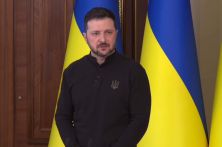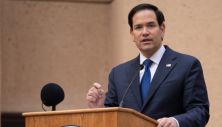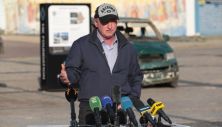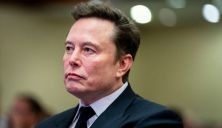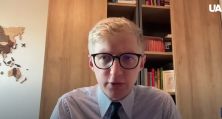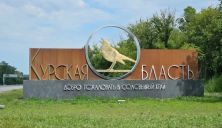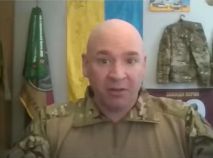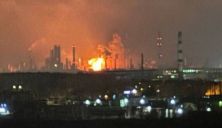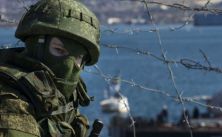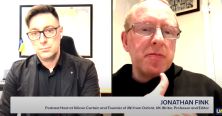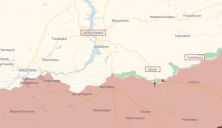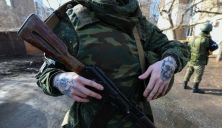On May 10, a meeting of the NATO Military Committee was held in Brussels. This is the highest military body of the North Atlantic Alliance, which consists of 32 defense ministers of the participating countries.
The committee previously stated that they see two main threats to the existence of the Alliance: Russian aggression, which is now concentrated in Ukraine, and terrorist groups.
Commander-in-Chief of the Armed Forces of Ukraine Valery Zaluzhny did not speak at the meeting due to the aggravated situation at the front. But the representatives of the Alliance nevertheless got acquainted with the current situation in the country and its needs for effective protection.
Alliance strengthens
At the opening of the meeting, NATO Secretary General Jens Stoltenberg said that the Alliance is working on a “new plan of action in the face of existing risks in the world”, which will be approved at the July NATO summit in Vilnius.
According to him, Russia’s war against Ukraine accelerated the reform of the Alliance, updated defense capabilities and generally influenced NATO members.
“We have deployed combat troops to the east of the North Atlantic Alliance for the first time in history, and European allies and Canada have spent an additional $350 billion on defense. So when President Putin launched a full-scale invasion of Ukraine in 2022, we were ready. A few hours later we activated all our defense plans. We have placed 40,000 troops under NATO command, supported by significant air and sea forces, and have strengthened our forward defenses from the Baltic to the Black Seas,” the Secretary General said.
During the meeting, most of the discussions were devoted to Ukraine. The military themselves spoke about this when they came to the journalists with the final information. Oleksii Matsuka, editor-in-chief of the FREEDOM TV channel, noted in Brussels that Kyiv’s allies are fully aware of all the details and intricacies of military operations.
NATO military committee chairman Rob Bauer told reporters that defense officials reiterated their continued support for Kyiv. According to him, there is no doubt that NATO will support Ukraine for as long as it takes.
An important element of the discussions at the meeting of the committee members was the synchronization of political and diplomatic efforts with military operations. It was difficult to imagine this option, since a full-scale war is going on in Europe. However, the defense ministers still tried to find such solutions.
“By coming to a consensus on how best to keep a billion people safe, we will ensure that political decisions are in line with military capabilities. The role of this committee is crucial. Our advice at NATO’s political level helps ensure that what is politically desirable is militarily feasible,” said Rob Bauer.
Opinions of military experts and officials
Will the past meeting affect the situation in Ukraine? Has Ukraine come close to NATO membership? What important decisions did the ministers make at the meeting? These issues were discussed on the FREEDOM TV channel:
- Olexander Musienko, head of the Center for Military Legal Research;
- Valery Ryabykh, military expert;
- Egor Chernev, Head of the Permanent Delegation of Ukraine to the NATO Parliamentary Assembly.
OLEXANDER MUSIENKO: The Alliance is transforming
-Now NATO is undergoing a transformation.
Not so long ago, the Alliance changed its doctrine, which concerns Central and Eastern Europe. It provides that from a strategy of prevention and response to threats, it is necessary to move on to a strategy of preventing a certain level of threats.
This means that if earlier it would have been necessary to react to the actual occupation of the Baltic states, now everything proceeds from the fact that it is necessary to plan and deploy our military bases, move weapons in such a way as to prevent the possibility of a Russian invasion even in our thoughts.
And this may lead to the fact that one of the countries will be occupied, Russia will be able to move further to the West.
There is also a second component of transformation. This is the first time since the Cold War that NATO is actually moving towards regional planning based on the level of potential threats.
It is clear that now all attention is drawn to Central Europe, based on the fact that there is a war of the Russian Federation against Ukraine, and also based on the fact that the Kremlin makes aggressive attacks and constantly plays to escalate the situation. It is planned to transfer additional weapons and contingents to contain the Kremlin.
In addition, the issue of increasing defense spending in NATO countries to ensure security is now very seriously approached. In addition, it was decided to increase the production of weapons. The military-industrial complex is also given attention. And plus the so-called “military Schengen” – the completion of work on the repair, construction and modernization of infrastructure facilities in order to be able to quickly transfer troops from point A to point B and deploy them if necessary.
The determination of the Alliance is just a way to show and demonstrate that no one is ready to make any negotiations, concessions, compromises and so on today.
And on this path, everyone in the Alliance wins from the point of view of Ukraine’s admission to NATO. Because NATO’s security and flank is moving further east. Obviously, having Patriot air defense systems, F-16 aircraft and other types of weapons in Ukraine, they will be able to neutralize quite a lot of threats. And the trumps with which Russia is still trying to blackmail the West will be knocked out.
VALERY RYABYKH: It is beneficial for Russia to lose to NATO, and not only to Ukraine
-The meeting of the NATO military committee is a preparatory stage for a further meeting in Vilnius and the adoption of a key decision regarding Ukraine’s further membership in the Alliance.
The Russian Federation wants to raise the level of conflict from just being defeated in this war by Ukraine to when it is defeated by NATO. And, of course, this will justify these theses that the Russian leadership is sowing for an internal audience.
Such a scenario is desirable for the Russian Federation. It is with this that I connect NATO’s rather mild response to provocations from the Russian Federation. And here, most likely, NATO and the EU countries have chosen the tactics of treating the Russian Federation as a sick person.
This is more like the reaction of psychiatrists when dealing with patients than the reaction of the Defense Alliance. But how far can Russia go in such manipulations? I hope that our partners feel this and do everything necessary.
I hope that in the attempts of the Russian Federation to aggravate relations with NATO, the Armed Forces of Ukraine will still put an end to it, liberating the temporarily occupied territories and entering the internationally recognized borders of Ukraine.
As for Ukraine’s membership in NATO, this is, of course, an issue that worries not only Ukrainian society, but also the leadership of the Alliance. Because it so happened that Ukraine has become a key player in European security. And, of course, without the inclusion of Ukraine in those security structures that ensure peace and stability on the territory of the European continent, the security configuration does not develop.
The Ukrainian issue is a key factor for the further development of the situation in the field of European security.
I expect that, firstly, all the necessary mechanisms will be included in order to provide the Ukrainian army with the necessary weapons and other support for the offensive campaign. It is also necessary to ensure the timely repair of the Armed Forces of Ukraine equipment, to supply all the necessary consumables.
The main means of ensuring the security of Ukraine will be the country’s entry into the Alliance. Only membership in the Alliance can unconditionally ensure all security issues for Ukraine in the future and secure our country from possible further attacks by the Russian Federation after the de-occupation of the territories.
EGOR CHERNEV: We will hear 31 “yes”, but after our victory
-Today, the main criterion for our advancement is victory in the war and the return of all territories and reaching the 1991 borders. But we want to hear, if not a date, then specific information: what needs to be done after the liberation of our territories in order to become a member of NATO as soon as possible, before the Russian Federation comes to its senses.
We will not hear a specific date. But we would like to hear at the summit in Vilnius a promise that after the end of the war Ukraine will become a member of NATO in the very near future.
I watched the transformation of the statements of Jens Stoltenberg, whom I have great respect for. Even before February 24, 2022, when asked about our membership prospects, he answered very evasively, because he understood that there was no unity within the Alliance on this issue. Now I am pleased with his decisive position. It is important for us to maintain the unity of the Alliance in order to continue to help Ukraine with what is needed on the battlefield.
It is important for us that no issues separate partners from the Rammstein format or NATO. Therefore, we do not yet see a sufficiently clear position regarding Ukraine’s membership in the Alliance.
